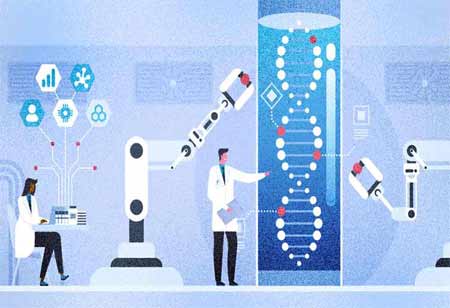Thank you for Subscribing to Healthcare Business Review Weekly Brief
Be first to read the latest tech news, Industry Leader's Insights, and CIO interviews of medium and large enterprises exclusively from Healthcare Business Review
AI and ML Transforming the Healthcare Sector
In the growing healthcare landscape, artificial intelligence (AI) and machine learning (ML) play transformative roles, driving significant advancements in diagnostics, treatment, and operational efficiency.

By
Healthcare Business Review | Friday, August 09, 2024
Stay ahead of the industry with exclusive feature stories on the top companies, expert insights and the latest news delivered straight to your inbox. Subscribe today.
AI and ML are transforming healthcare by improving operational efficiency. These technologies enable earlier disease detection, tailored therapies, and streamlined processes, leading to better patient outcomes and more effective healthcare delivery.
FREMONT, CA: In the growing healthcare landscape, artificial intelligence (AI) and machine learning (ML) play transformative roles, driving significant advancements in diagnostics, treatment, and operational efficiency. By integrating AI and ML into healthcare systems, professionals can achieve earlier disease detection, tailored treatment strategies, and streamlined administrative processes, ultimately improving patient outcomes and operational effectiveness. These technologies leverage vast amounts of data and sophisticated algorithms to enhance medical practices, offering new opportunities:
AI in Healthcare
Diagnostic Accuracy: AI algorithms can analyze medical images highly, detecting subtle patterns and anomalies that humans might miss. This technology enables earlier and more accurate diagnoses of conditions such as cancers and neurological disorders. By identifying these issues early, AI improves the likelihood of successful treatment outcomes. The precision of AI diagnostic tools contributes to more reliable and timely medical interventions, enhancing patient care.
Personalized Treatment Plans: AI systems leverage patient data to create customized treatment plans tailored to individual needs and recommend specific medication regimens and therapeutic strategies by examining historical health records and personal profiles. This personalized approach ensures that treatments are more effective and aligned with patients' unique health conditions. AI's ability to adapt recommendations based on individual data enhances the precision and efficacy of medical care, leading to better patient outcomes.
Patient Engagement: AI technologies, such as chatbots and virtual health assistants, improve patient engagement by providing personalized communication and support. These tools can answer questions, remind patients of medication or appointments, and offer educational resources tailored to individual health conditions by enhancing patient interaction and accessibility.






